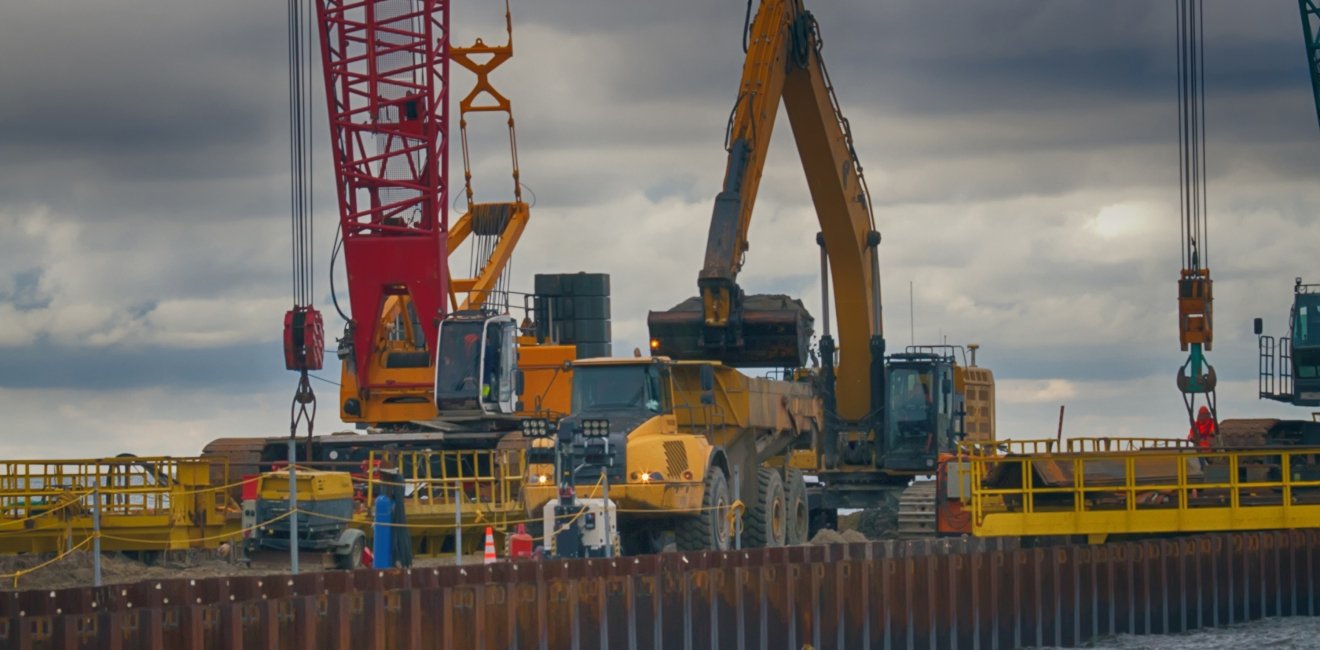
A blog of the Kennan Institute
BY MARK TEMNYCKY
On August 24, 2017, Gazprom’s Western partners agreed to help fund the upcoming Nord Stream 2 pipeline. This allowed the Russian gas company to make preparations for one of Europe’s most recent controversies. By January 2018, Germany had granted permits for the project’s construction, and the first parts of the pipeline were installed in July 2018.
Many German politicians, companies, and business leaders have supported Nord Stream 2, arguing it would improve Europe’s energy security. Several nations within the EU, the United States, and Eastern Europe, however, have opposed the project. These critics have argued that Nord Stream 2 will threaten Europe’s national security. As these two sides debate the pipeline, Russia continues to construct Nord Stream 2 as it is determined to finish the project.
The Energy Situation in Europe
Currently, one-third of Russian gas exports to Europe travel through Ukraine. As a result, several Central European states are highly sensitive to Russo-Ukrainian relations. Previous disputes between these two countries saw Russia turn off its gas pipelines to Ukraine, and this left millions of Europeans without gas during the winter months in 2006 and 2009. As a result of these events, some European states began to explore other avenues to acquire a gas supply without disruption. This eventually led to the push for Nord Stream 2 (as well as TurkStream, a southern pipeline that carries gas from Russia to the Balkans by way of Turkey).
Supporters of Nord Stream 2 have argued that the pipeline will bring in new gas to Europe, increasing Europe’s gas consumption. The facts tell another story. According to reports, repairing the current Ukrainian-Polish pipeline would cost around €6 billion. The construction of Nord Stream 2, however, would cost €10 billion. Experts believe that Nord Stream 2 is diverting gas from the preexisting Ukrainian-Polish pipeline, meaning Europeans will receive the same amount of gas, if from a different source.
Economic and Security Implications of Nord Stream 2
There are many reasons to oppose Nord Stream 2. First, the pipeline will flow directly from Russia to Germany by way of the Baltic Sea, meaning the Russians would gain additional leverage over the Europeans. Second, creating this pipeline could increase Russia’s naval presence in the Baltic Sea, a move that would unsettle the Baltic states. Third, if relations between Europe and Russia were to sour, the Russians could quickly turn off the flow of gas to Germany, similar to what it did to Ukraine. Fourth, the completion of Nord Stream 2 would give the Russians an energy monopoly over the European continent.
Nord Stream 2 poses several problems for Ukraine. This Eastern European state makes roughly $1 billion annually from the current pipeline. The competition of Nord Stream 2 would see Ukraine lose a substantial amount of revenue. Ukraine would also lose its influence over Western Europe as its pipelines would become obsolete. As a result, while Europe would become dependent on Russia, the Russians could further meddle in Ukraine’s affairs without consequence.
Poland is also threatened by Nord Stream 2. This Central European state has already begun to find ways to counter the construction of this pipeline. For example, the Poles have started to import liquid natural gas from the United States. Discontinuing the Ukrainian-Polish pipeline would force Poland to import gas from its neighbor, Germany. This would see gas prices rise for the average Polish consumer, and it would be a burden on the Polish economy.
While Nord Stream 2 poses issues for Ukraine and Poland, several German politicians, businesspeople, investors, and companies favor the pipeline. These supporters have argued that the pipeline will provide new economic opportunities for Germany. Second, as Germany shifts from coal and nuclear energy, it has become Europe’s biggest natural gas consumer. Third, some Germans believe that Nord Stream 2 could help mend the relationship between Germany and Russia as the revenue earned from this pipeline would boost their economies.
Despite this German support, many European states have opposed Nord Stream 2. The consequences of the pipeline would be grave for Europe’s energy security. The United States is also firmly against the project, and it has implemented numerous sanctions to halt its construction. To stop the pipeline, the United States and its allies must continue to impose sanctions on the companies, board members, and vessels supporting Nord Stream 2. Numerous organizations have already abandoned the project because of these threats. Continued pressure could force additional groups to abandon the project. Finally, the West should aid Ukraine and Poland by helping them reform their respective energy sectors. Adopting this strategy would help Ukraine and Poland become less energy dependent on Russia.
Opponents of Nord Stream 2, however, must be careful. First, sanctioning German politicians, companies, and executives could strain U.S.-German relations. Additional sanctions could lead to greater tensions within the EU. Finally, a more conservative approach would be to wait until the 2021 German elections. Germany’s Greens political party opposes the project. A Greens victory could lead to the end of Nord Stream 2. If the Greens were to lose, however, this would open the way to the completion of project. In other words, this would be a risky gamble.
A Gordian Knot
Overall, Nord Stream 2 poses many problems for Europe. First, completion of the pipeline would see the European continent increase its dependence on Russian gas. If tensions were to rise between Europe and Russia, Russia could turn off the pipeline, leaving millions of Europeans without gas. Second, Europe’s reliance on Russian gas would present Russia with the leverage to further meddle in the affairs of its neighbors without consequence. Third, the new pipeline would divert the flow of gas from Ukraine and Poland, leaving these two countries to face a substantial revenue loss. They would also be forced to pay higher gas prices.
Given these risks, the opponents of Nord Stream 2 must work quickly to persuade Germany that the pipeline’s consequences far outweigh the benefits. Otherwise, if these parties are unable to convince the Germans, Europe’s energy security will hang in the balance.
The opinions expressed in this article are those solely of the authors and do not reflect the views of the Kennan Institute.
Author


Kennan Institute
After more than 50 years as a vital part of the Wilson Center legacy, the Kennan Institute has become an independent think tank. You can find the current website for the Kennan Institute at kennaninstitute.org. Please look for future announcements about partnership activities between the Wilson Center and the Kennan Institute at Wilson Center Press Room. The Kennan Institute is the premier US center for advanced research on Eurasia and the oldest and largest regional program at the Woodrow Wilson International Center for Scholars. The Kennan Institute is committed to improving American understanding of Russia, Ukraine, Central Asia, the South Caucasus, and the surrounding region through research and exchange. Read more

Explore More in Focus Ukraine
Browse Focus Ukraine
Talking to the Dead to Heal the Living

Ukrainian Issue in Polish Elections


